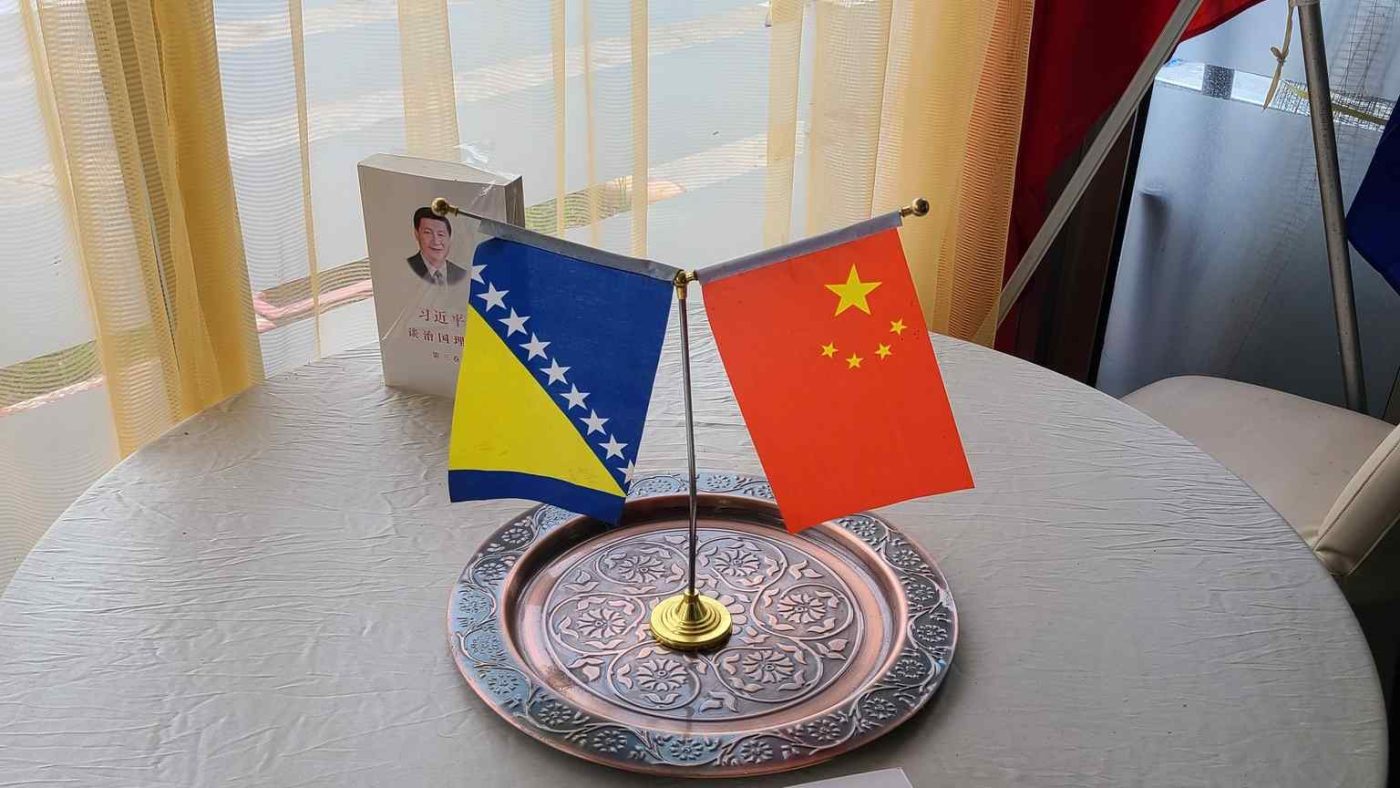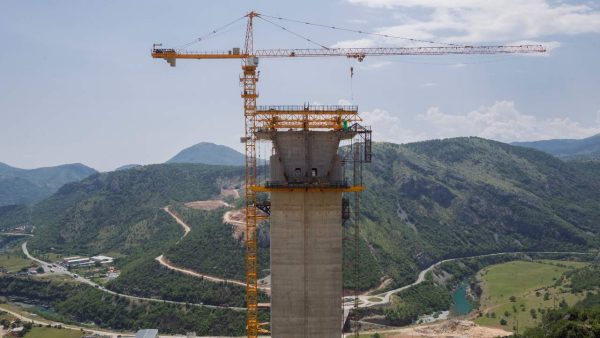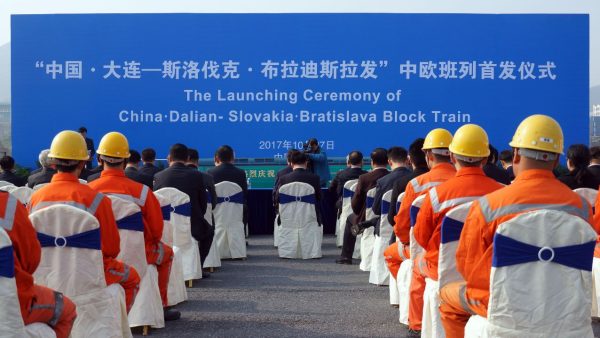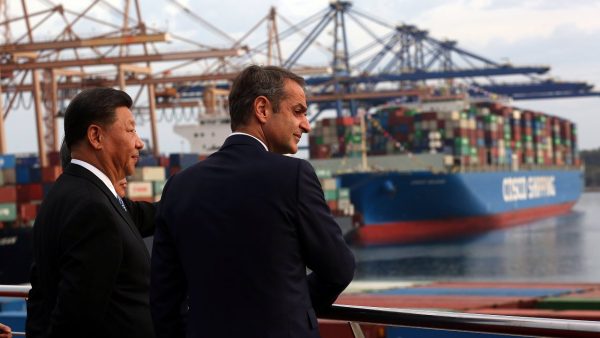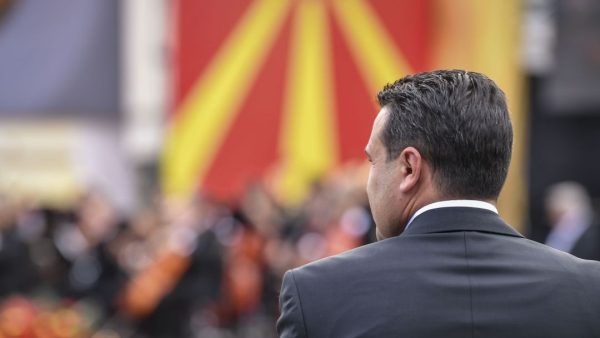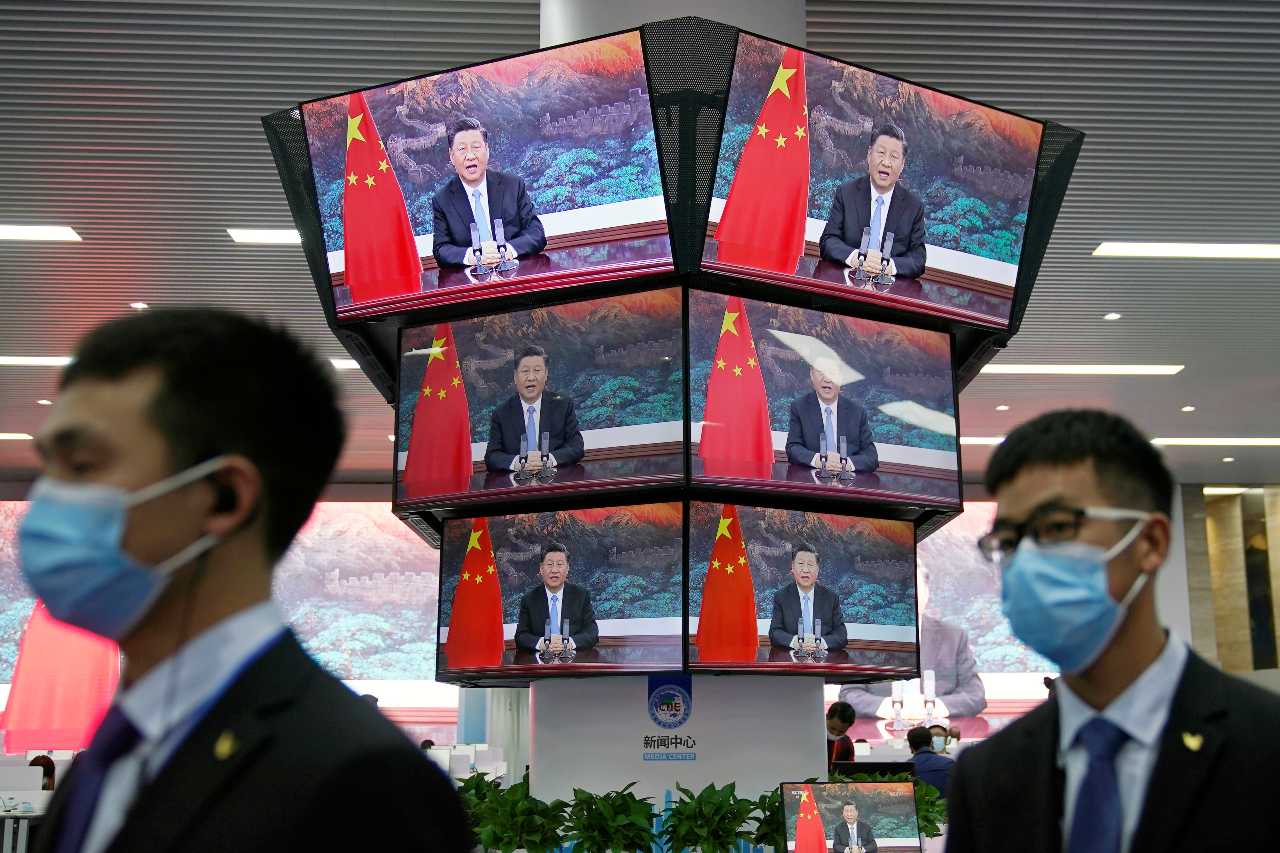This report is a part of #CCPinCEE, a series of reports published by the Center for European Policy Analysis (CEPA) analyzing Chinese influence efforts and operations across the nations of Central and Eastern Europe.
Goals and objectives of CCP malign influence
Although China runs no visible, overt malign influence operations in Bosnia and Herzegovina, the Chinese Communist Party strives to cultivate cultural, political, and academic ties in this politically fragmented and economically vulnerable country. It also promotes investment and commercial ties in the transportation and energy industries. These efforts are more pronounced in the Republika Srpska1 (RS), where the authorities tend to adopt a pro-Russian and anti-Western foreign policy stance.2
CCP’s methods, tools, and tactics for advancing malign influence
While there is little evidence that China exerts malign influence in BiH, it does work on building ties and relationships with powerful political actors. For its overall positioning in BiH, the most important avenues for Chinese influence are cultural and economic. Beijing tries to project a positive image and build ties with students and universities, religious organizations, businesses, and other nongovernmental bodies.
BiH and China have pledged closer cooperation in various fields in the past decade, including health and medical sciences,3 media, and civil society. An agreement on media development envisages exchanges of news, visits, joint coverage of programs, and the establishment of wider mechanisms to help broadcasting, publishing, filmmaking, and print journalism.
Another agreement,4 largely moribund since its signing in 2019, ostensibly promotes cooperation between Chinese and Bosnian think tanks and businesses via visits, sharing of experience, seminars, roundtables, and other similar activities.
Chinese organizations, cultural institutions, universities, and the like have established venues of cooperation with their Bosnian counterparts through language courses, student exchanges, travel visits, formal agreements, and donations. Although such ties have been established throughout BiH, relations with China are generally stronger and more visible in RS.
Universities in the national capital, Sarajevo, and the RS administrative center, Banja Luka, host Confucius Institutes.5 The more active Banja Luka institute organizes competitions, offers online video courses about Chinese culture, broadcasts lectures on Chinese culture on Republika Srpska’s public broadcaster, RTRS, and more.6 Both provide free Mandarin lessons. Professors and deans from both universities have visited China repeatedly.7 The institute in Sarajevo also organizes annual summer camps in China to learn the Chinese language for a handful of students.8
Donations from China’s embassy in Sarajevo and China-based organizations are another important means of influence. They have included $174,700 worth of clothing and toys for children at risk from the Association of Chinese Entrepreneurs in 2005,9 food packages for the Red Cross from the embassy in 2016,10 and PCR COVID-19 testing kits from the Fosun and China Cancer foundations, valued at $104,000.11 In April 2021, the Chinese government donated 50,000 Sinopharm COVID-19 vaccines to BiH.12
China has also donated vehicles and engineering equipment to the BiH military several times in the past decade.13 The Bosnian and Chinese defense ministries signed an aid agreement in 201314 and another in 201714 that was worth around 2.5 m BAM ($1.28 m), under which Beijing donated 15 pieces of equipment to Bosnia’s armed forces four years later.15
Two nonprofit organizations in Bosnia, the Pojas i put (Belt and Road) think tank and the Bosansko-kinesko prijateljstvo (Bosnian-Chinese Friendship) association, aim to promote Chinese culture, cooperation with China, and the Belt and Road Initiative.16) Pojas i put owns two media outlets, Kina Danas (China Today) and Glas Kine (Voice of China), that have limited reach. In addition, the public Srpska Republika News Agency and Federal News Agency have cooperation agreements with Xinhua, their Chinese counterpart.17
In the absence of specific polling data, it is hard to say if these activities affect public opinion. Officials usually express gratitude to China for its gifts, as when Ankica Gudeljević, the BiH minister for civil affairs, accepted the COVID-19 vaccine donation.18
There is no evidence that China directly or fully owns any of the enterprises, but the Chinese Development Bank could take ownership in the event of a loan default.20
The state-owned company Sinohydro is also involved in building infrastructure projects financed by Western multilateral lenders, notably the Vc highway connecting Herzegovina with the Dalmatian coast. This year, the company signed a preliminary agreement to build a tunnel through Trebević mountain in the Republika Srpska, connecting Istocno Sarajevo and Pale.21
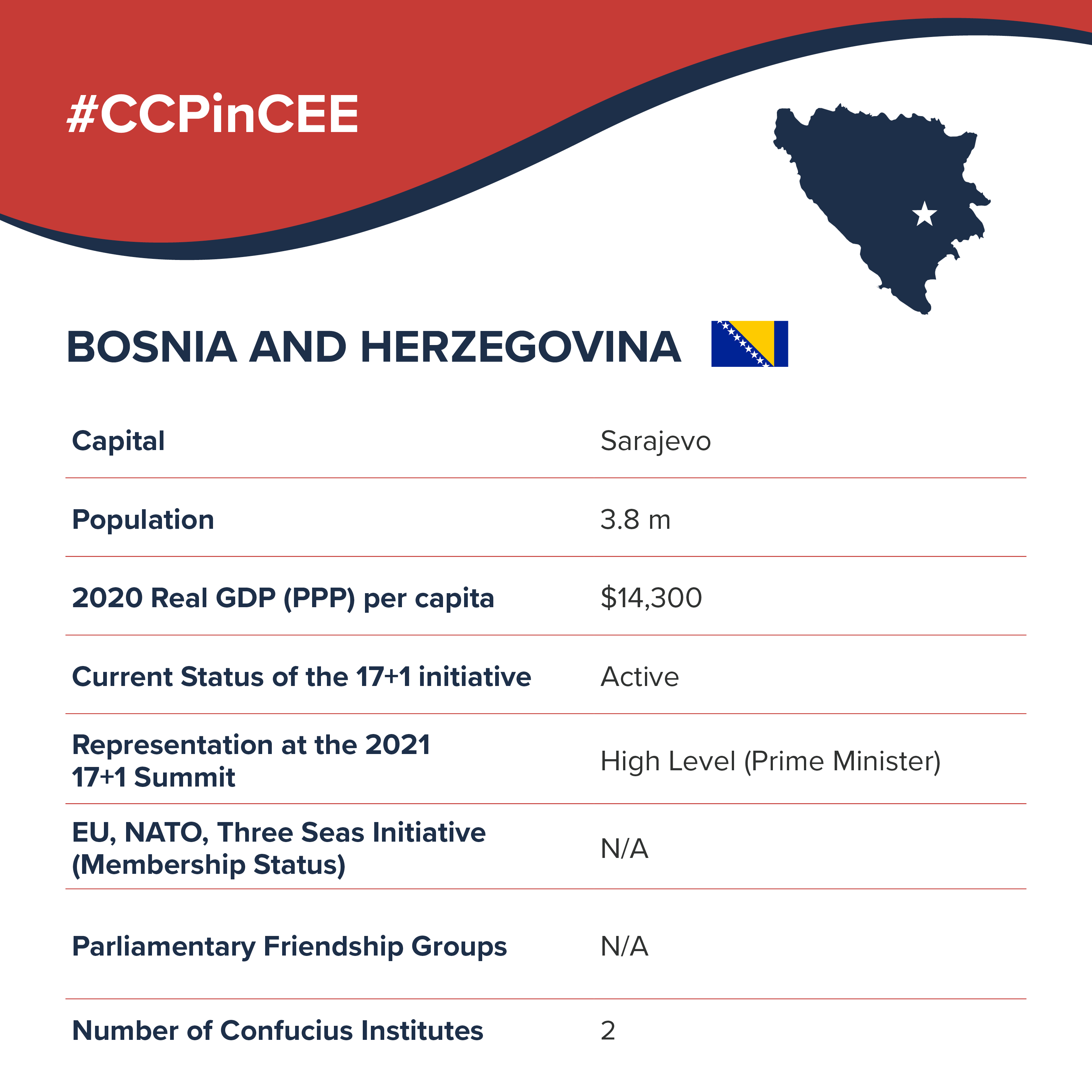
Sources: The World Factbook 2022, (Washington, DC: Central Intelligence Agency, 2020), https://www.cia.gov/the-world-factbook/; World Bank, The World Bank Group, 2022, https://www.worldbank.org/en/home; “Group for Asia, Parliamentary Assembly of Bosnia and Herzegovina, Retrieved June 27, 2022, https://www.parlament.ba/committee/read/12?lang=en
Target audiences and populations
A 2019 working paper on authoritarian influences in the Western Balkans22 noted that Beijing expands its influence primarily via elites and the business community, making no overt political demands, but posing an indirect threat to values such as human rights and the rule of law. China works on building ties and relationships with political actors, notably with the Republika Srpska and its ruling Alliance of Independent Social Democrats (SNSD). Milorad Dodik, leader of the SNSD and a member of the BiH presidency, has traveled to Beijing for high-level meetings. During a visit to Beijing in 2016, Dodik characterized Chinese investments as crucial and responsive.23
The crisis in domestic and external politics caused by Dodik’s secessionist rhetoric and actions has raised the prospect of further EU and other sanctions on the RS leadership.24 In turn, Dodik has threatened to turn to China and Russia, who do not demand democratic reforms, for assistance if the EU withholds funds.25 Although Chinese loans may indeed come with lower borrowing costs and easier terms, their lack of transparency opens the door to corruption.
China has supported the Republika Srpska in the diplomatic arena. In 2015, it abstained from a United Nations Security Council resolution condemning the genocide of the Bosniak/Muslim population in Srebrenica in July 1995.26
China also does not recognize the legitimacy27 of the international high representative in Bosnia, Christian Schmidt,28 who named Dodik as one of the main culprits for the current instability in BiH in a 2021 report to the UN Security Council.29 Add to this the Republika Srpska’s close relations with neighboring Serbia, which has embraced China partly as an alternative to the West, and the leaders and people of the Republika Srpska are likely vulnerable to potential malign influence from China. Bosnia’s other regional division, the majority Bosniak-Croat Federation of BiH, is at least nominally supportive of Euro-Atlantic integration, reflecting an internal divide over the country’s choice of foreign partners and allies.
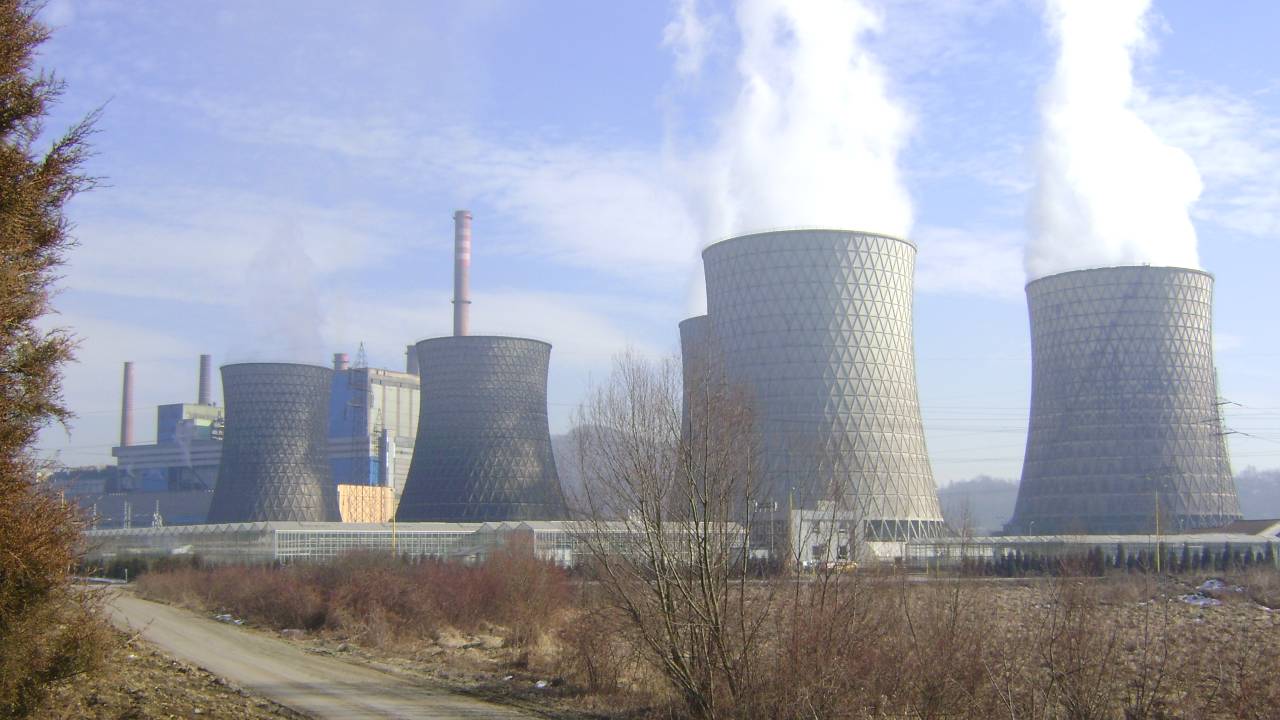
Photo: Coal-fired power plant in Tuzla, Bosnia and Herzegovina. Credit: MoserB
Conclusion
China has established an economic, cultural, and political presence in Bosnia, mainly in the Republika Srpska, but it has yet to exert or exploit this influence in pursuit of any particular strategic goal.
- The Republika Srpska (RS) is one of BiH’s two administrative units, the other entity is the Federation of Bosnia and Herzegovina. The RS was created in the Dayton Peace Accord in 1995. [↩]
- Iulian Ernst. “Bosnia’s Republika Srpska seeks stronger economic ties with Russia.” Intellinews. August 14, 2022. https://intellinews.com/bosnia-s-republika-srpska-seeks-stronger-economic-ties-with-russia-253395/ [↩]
- “Potpisan Memorandum o razumijevanju o saradnji u oblasti zdravstva i medicinskih nauka između Nacionalne komisije za zdravstvo Narodne Republike Kine i Ministarstva civilnih poslova Bosne i Hercegovine”. Ministarstvo vanjskih poslova Bosne i Hercegovine. April 2, 2020. http://www.mcp.gov.ba/publication/read/potpisan-memorandum-o-razumijevanju-o-saradnji-u-oblasti-zdravstva-i-medicinskih-nauka [↩]
- Selma Ašćerić. “Unapređenje Think Tank-a i Saradnje u Oblasti Medija Sa NR Kinom,” Istinomjer, April 19, 2019. https://istinomjer.ba/unapredjenje-think-tank-a-i-saradnje-u-oblasti-medija-sa-nr-kinom/. [↩]
- “Konfučijev Institut – Most Između Akademskih Zajednica Bosne i Hercegovine I Kine”. Univerzitet u Sarajevu. December 9, 2019. https://www.unsa.ba/novosti/konfucijev-institut-most-izmedu-akademskih-zajednica-bosne-i-hercegovine-i-kine;“Konfucijev Institut Univerziteta U Banjoj Luci”. Konfucijev institut. https://www.ki.unibl.org/. [↩]
- Faruk Borić (ed.). “25 godina diplomatskih odnosa NR Kine i BiH: Zbornik radova”. Fondacija za promocijui razvoj Inicijative “Pojas i put” Istraživački centar. 2020. https://pojasiput.ba/en/wp-content/uploads/2020/09/Zbornik-radova-13092020.pdf [↩]
- “Delegecija Univerziteta u Banjoj Luci Posjetila Kinu.” Fakultet bezbjednosnih nauka, Univerzitet u Banjoj Luci. May 27, 2019. https://fbn.unibl.org/lat/2019/05/27/delegecija-univerziteta-u-banjoj-luci-posjetila-kinu/ [↩]
- “Ljetni Kamp Kineskog Jezika Za Studente i Srednjoškolce.” Univerzitet u Sarajevu. 2017. http://old.unsa.ba/s/index.php?option=com_content&task=view&id=3156;“Ljetni kamp kineskog jezika za studente i srednjoškolce.” Univerzitet u Sarajevu. May 15, 2018. https://www.unsa.ba/novosti/ljetni-kamp-kineskog-jezika-za-studente-i-srednjoskolce; “Poziv za podnošenje prijava za “Ljetni kamp u Kini 2019”. Univerzitet u Sarajevu. March 22, 2019. https://www.unsa.ba/index.php/novosti/poziv-za-podnosenje-prijava-za-ljetni-kamp-u-kini-2019 [↩]
- “Za Socijalno Ugroženu Djecu Sarajeva Donacija Kineskih Privrednika.” Grad Sarajevo. December 22, 2005. https://www.sarajevo.ba/hr/article/1247/za-socijalno-ugrozenu-djecu-sarajeva-donacija-kineskih-privrednika. [↩]
- “Donacija Ambasade Nr Kine: Paketi Sa Hranom Za Korisnike Centralne Kuhinje Crvenog Križa KS.” Ministarstvo za rad, socijalnu politiku, raseljena lica i izbjeglice Kantona Sarajevo. November 10, 2016. https://mrsri.ks.gov.ba/aktuelno/novosti-sa-vlade/donacija-ambasade-nr-kine-paketi-sa-hranom-za-korisnike-centralne-kuhinje. [↩]
- Aldijana Hadzic. “Kineske Fondacije Dodijelile Pomoć BiH Za Borbu Protiv Covid-19.” Anadolu Agency. November 5, 2020. https://www.aa.com.tr/ba/balkan/kineske-fondacije-dodijelile-pomoc-bih-za-borbu-protiv-covid-19/1963839. [↩]
- “Vakcine protiv COVID-19 iz kineske donacije na putu za BiH.” Radio Slobodna Evropa. April 26, 2021. https://www.slobodnaevropa.org/a/31223179.html [↩]
- “Increased activity by sanctioned Chinese defence companies in the Western Balkans,” Just Finance International, May 12, 2021. https://justfinanceinternational.org/2021/05/12/increased-activity-by-sanctioned-chinese-defence-companies-in-the-western-balkans/#bosnia [↩]
- Potpisan Sporazum o donaciji NR Kine OS BiH u vrijednosti od 10 miliona juana, Ministry of Defense of Bosnia and Herzegovina, June 6, 2017, http://mod.gov.ba/aktuelnosti/vijesti/default.aspx?id=60056 [↩] [↩]
- NR Kina donirala Oružanim snagama BiH 15 inžinjerijskih mašina i vozila, Ministry of Defense of Bosnia and Herzegovina, March 31, 2021. http://mod.gov.ba/aktuelnosti/vijesti/?id=84472 [↩]
- See the Statute of “Belt and Road” (https://web.archive.org/web/20220805151444/http://pojasiput.ba/en/wp-content/uploads/2019/06/Statut.pdf) and the Statute of “Bosnian-Chinese Friendship” (https://web.archive.org/web/20220805152728/https://www.boskin.ba/odluka-o-osnivanju-udruzenja-bosansko-kinesko-prijateljstvo/ [↩]
- “Kineska novinska agencija Xinhua i Novinska agencija Patria ozvaničile saradnju.” Novinska agencija Patria. September 19, 2017. https://nap.ba/news/38892; “Potpisan ugovor o saradnji agencija “Srna” i Sinhua.” Capital. October 24, 2014. https://www.capital.ba/potpisan-ugovor-o-saradnji-agencija-srna-i-sinhua/; “Fena i Xinhua potpisale sporazum o saradnji.” Bljesak info. May 22, 2013. https://bljesak.info/vijesti/flash/fena-i-xinhua-potpisale-sporazum-o-saradnji/12670 [↩]
- “Ministrica Ankica Gudeljević preuzela vakcine za BiH.” Ministarstvo civilnih poslova Bosne i Hercegovine. April 29, 2021. http://www.mcp.gov.ba/publication/read/ministrica-ankica-gudeljevic-preuzela-vakcine-za-bih?lang=en ) China has “shown since the beginning of the pandemic that it is a true friend of BiH,” she said.
China also has an economic presence in Bosnia, predominantly through planned or ongoing infrastructure and energy projects financed entirely or in part through loans from Chinese banks. They include:
- A thermal power plant in Stanari, the only completed project so far.
- Expansion of a coal-fired power plant in Tuzla, one of the largest investments in BiH since the war. ((“Mapping China’s Rise in the Western Balkans: Bosnia and Herzegovina,” European Council on Foreign Relations, 2022, https://ecfr.eu/special/china-balkans/bosnia-and-herzegovina/ [↩]
- “Chinese firm wins $330 mln road deal in Serb Republic”. Reuters. August 24, 2022. https://www.reuters.com/world/europe/chinese-firm-wins-330-mln-road-deal-serb-republic-2022-08-24/ [↩]
- Sadiković, Mirna. “Kineski put svile u BiH: Mnogo planiranog, malo ostvarenog.” Radio Slobodna Evropa. June 27, 2019. https://www.slobodnaevropa.org/a/bih-china-interest-investments/30023757.html. [↩]
- “What is hidden behind the job worth 200 million: Chinese company from the black list won the construction of the tunnel through Trebević,” Žurnal. June 15, 2022. https://zurnal.info/clanak/chinese-company-from-the-black-list-won-the-construction-of-the-tunnel-through-trebevic/25082 [↩]
- Kurt Bassuener. Pushing On An Open Door: Foreign Authoritarian Influence in the Western Balkans. National Endowment for Democracy. 2019. https://www.ned.org/wp-content/uploads/2019/05/Pushing-on-an-Open-Door-Foreign-Authoritarian-Influence-in-the-Western-Balkans-Kurt-Bassuener-May-2019.pdf [↩]
- “Dodikov SNSD postao partner sa Komunističkom partijom Kine,” Radio Sarajevo. November 4, 2016. https://archive.vn/gxAFS [↩]
- “Germany renews call to sanction Bosnian Serb leader Milorad Dodik.” DW News. December 13, 2021. https://www.dw.com/en/germany-renews-call-to-sanction-bosnian-serb-leader-milorad-dodik/a-60110636 [↩]
- Daniel Boffey. “Bosnian Serb leader: Putin and China will help if west imposes sanctions”. The Guardian. November 29, 2021. https://www.theguardian.com/world/2021/nov/29/bosnian-serb-leader-putin-and-china-will-help-if-west-imposes-sanctions; “Cvijanović: Kina i Rusija pokušale da stvari uvedu u red.” Nezavisne novine. August 17, 2021. https://www.nezavisne.com/novosti/bih/Cvijanovic-Kina-i-Rusija-pokusale-da-stvari-uvedu-u-red/676420 [↩]
- “UN: Rusija oborila rezoluciju o Srebrenici.” Al Jazeera. July 8, 2015. https://balkans.aljazeera.net/news/balkan/2015/7/8/un-rusija-oborila-rezoluciju-o-srebrenici [↩]
- “Ambasada Kine u BiH: Imenovanje visokog predstavnika nije legitimno,” Radio Slobodna Evropa, August 17, 2021. https://www.slobodnaevropa.org/a/schmidt-kina-ohr-bih/31414439.html; “Cvijanović: Kina i Rusija pokušale da stvari uvedu u red.” Nezavisne novine. August 17, 2021. https://www.nezavisne.com/novosti/bih/Cvijanovic-Kina-i-Rusija-pokusale-da-stvari-uvedu-u-red/676420 [↩]
-
The Office of the High Representative was established as an “ad hoc international institution responsible for overseeing implementation of civilian aspects of the Peace Agreement ending the war in Bosnia and Herzegovina”. See: http://www.ohr.int/about-ohr/general-information/ [↩]
- Sixtieth report of the High Representative for Implementation of the Peace Agreement on Bosnia and Herzegovina to the Secretary-General of the United Nations (S/2021/912), UN document, November 1, 2021, https://documents-dds-ny.un.org/doc/UNDOC/GEN/N21/301/14/PDF/N2130114.pdf [↩]

